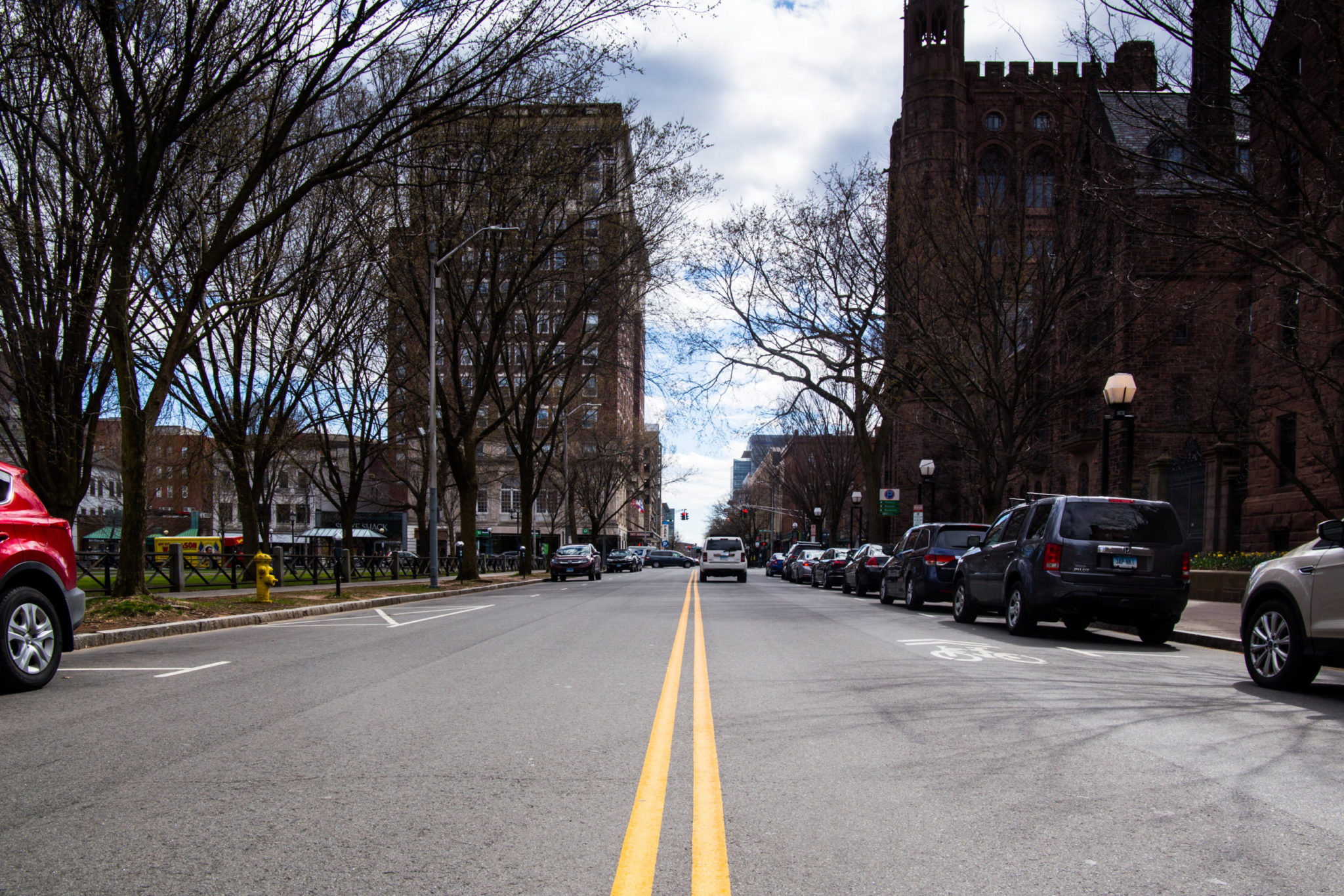Despite FBI data showing a slight increase in violent crime in New Haven from 2018-2019, overall crime rates are decreasing

Lucas Holter, Senior Photographer
Last Monday, data released from the Federal Bureau of Investigation showed that while the Elm City has seen an uptick in some types of violence from 2018-2019, overall decades-long crime rates have continuously decreased in New Haven.
The FBI’s Uniform Crime Report includes crime counts in every city and state in the United States. According to its data on New Haven, violent crime –– which includes nonnegligent manslaughter, rape, robbery and aggravated assault –– increased from 1,105 reported instances in 2018 to 1168 reported instances in 2019. But overall crime dropped significantly. In 2019, reported violent and property crimes totalled 6,165 in the Elm City, a 33.77% decrease from the total offenses reported in 2009, according to data gathered in the UCR.
“I have paid attention to these trends for a long time” said University of New Haven Associate Professor of Criminal Justice Michael Lawlor. “The best point of reference to look at it is as a long term trend, which has been decreasing. New Haven has hit a historic low in crime and it’s down significantly from last year.”
Incidents of aggravated assault, robbery and felony-sex assault have gone down in New Haven this year. Total property crime, including burglary, motor vehicle theft and other larceny has decreased 11.1 percent since last year, according to CompStat data collected by the New Haven Police Department. According to the FBI report, Connecticut has seen the second-largest drop in violent crime across the country in 2019.
However, CompStat also indicates that the city had seen eight homicides by this time last year –– compared to 16 homicides so far in 2020. The data also shows that the number of confirmed shots fired has increased by 38.5 percent as compared to 2019.
New Haven’s violent crime rate last peaked in 2011, when the FBI’s UCR report ranked New Haven fourth on its list of cities with the highest rates of violent crime. Since then, New Haven has generally followed a downward trend in homicides, non-fatal shooting victims and confirmed shots fired until the slight uptick in the last two years.
In regards to the increased number of shooting victims in New Haven over the past two years, Lawlor explained that there isn’t anything unique about the uptick in New Haven. He explained that murders across the country have been rising this year, and this year, murder rates are “at a historic high.”
Last month, Mayor Justin Elicker told the News that he partly attributed the recent uptick in violent crime in the city to the severe economic hardship caused by the COVID-19 pandemic, illegal guns on the streets and prison releases due to pandemic health concerns. Cities across the nation have seen a similar surge in recent months.
However, Lawlor claimed that Connecticut in general has been doing an exceptional job at reducing crime in the last 10 years. He said that the state had been focused on getting more young people out of the prison system and the school to prison pipeline.
As an example, Lawlor cited the Raise the Age Connecticut initiative –– a group fighting Connecticut’s practice of trying 16 to 18 year-olds as adults.
“[Another] big [initiative] in Connecticut is to disincentivize expelling and suspending students,” Lawlor said. “You can totally show down the road that the schools that expel a lot of kids end up putting a lot of kids in prison down the road.”
Lawlor attributed many policy changes to the work of activist groups like the ACLU Campaign for Smart Justice.
But long-time New Haven activist against police brutality, Barbara Fair, told the News that she was not wholly convinced that Connecticut should be the model in decreasing crime.
“Connecticut likes to pretend that they’re progressive, but they’re not,” Fair said. “A lot of the [change] that happens is because people like myself, other organizations and long time activists have fought every step of the way to get every single thing we wanted. We had to fight like hell to get police accountability.”
Fair, an organizer with Stop Solitary Connecticut, told the News that her work to reduce the number of incarcerated individuals of Connecticut was key to lowering crime as a whole. This year, Stop Solitary Connecticut has demanded that Governor Ned Lamont reduce the number of prisoners in state prison by 4,000. Though this demand has not been met, Fair said that the police have attributed some of the uptick in violent crime to released prisoners.
According to Fair, while crime has been decreasing recently in New Haven, especially since 2011, it would be a mistake to attribute the decrease to increased funding to the New Haven Police Department over the past five years. She claimed that much of NHPD funding goes to overtime pay and pension funding — which, over the past 10 years, has covered a rate of 41.4 to 52.1 percent of officer salaries. Ultimately, Fair said that she often sees the police “reporting crime [rather] than preventing crime.”
In recent months, local activist groups such as Black Lives Matter New Haven and the Citywide Youth Coalition have been making renewed calls to defund the police. On Aug. 14, the groups held a #DEFUNDTHEPOLICE rally outside of Mayor Justin Elicker’s house and on Sept. 25, BLM-NH organized a protest against the lack of indictments for the three police officers who killed Breonna Taylor.
The NHPD was formed on July 27, 1861.
Talat Aman | talat.aman@yale.edu
Interested in getting more news about New Haven? Join our newsletter!







